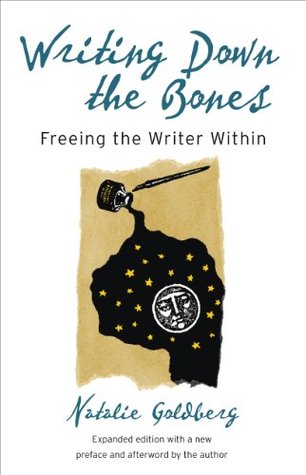More on this book
Community
Kindle Notes & Highlights
So when you’re in the Samurai space, you have to be tough. Not mean, but with the toughness of truth. And the truth is that the truth can never ultimately hurt. It makes the world clearer and the poems much more brilliant.
You can have the confidence that the writer of that poem will write other poems. You don’t need to think that if you don’t whip something out of the bad poem in front of you, the writer will never write again.
It’s a good process to be willing to just let go.
not all the times that we become energetic in our writing mean that we have a valuable piece.
If it doesn’t, quit beating an old horse. Go on writing. Something else will come up. There’s enough bad writing in the world.
IT IS A good idea to wait awhile before you reread your writing. Time allows for distance and objectivity about your work. After you have filled a whole notebook in writing practice (perhaps it took you a month), sit down and reread the entire notebook as though it weren’t yours.
Another good value to rereading whole notebooks is that you can see how your mind works.
Often while you are doing writing practice you have no idea whether you have written anything good or not. Sometimes I discover poems in my notebook that I did not know I had written. Our conscious minds are not always in control.
The continuation of writing through all your discursive thoughts is the practice. A month later you recognize consciously the good writing when you reread your notebooks. At this point your unconscious and conscious selves meet, recognize each other, and become whole. This is art.
Like a Samurai with an empty mind who cuts his opponents in half, be willing to not be sentimental about your writing when you reread it. Look at it with a clear, piercing mind.
For instance, you are writing about pastrami. Your first timed writing is good, but you know you have a lot more to say about the subject. Over a day, two days, a week’s time, do several more timed writings on pastrami. Don’t worry that you might repeat yourself. Reread them all and take the good parts of each one and combine them. It is like a cut-and-paste job, where you cut out the strong writings of each timed writing and paste them together. So even in rewriting you use the method and rules of timed writing.
Often you might read page after page in your notebooks and only come upon one, two, or three good lines. Don’t be discouraged. Remember the football teams that practice many hours for a few games. Underline those good lines. Add them to your list of writing topics, and when you sit down to practice you can grab one of those lines and keep going. Underlining them also keeps you alert to them, and often you unconsciously use them.
An artist exudes vitality; a spiritual person exudes peace.
finished one chapter and began another. That
“That’s very nice if they want to publish you, but don’t pay too much attention to it. It will toss you away. Just continue to write.”
Don’t use the excuse that you are not in the right place.
Land is the earth. Earth is your life, moment by moment.
You have to somehow address your whole life. We can’t put things off.
We give a lot of names to our excuses, to the reasons we don’t want to write or we’re afraid to. Finally, if you want to write, you have to just shut up, pick up a pen, and do it.
This is our life. Step forward.
Monkey mind is
Something that creates busyness to keep us away from our true heart.
I could sit down and fill a journal and say, “I’m so happy today, I fell in love, I love my boyfriend so much, he’s so cute,” and someone else would read it and be bored. To learn to communicate beyond ourselves we have to let go of our immediate expression and go deeper, honor the significance of details, touch things as they are.
Writing is my deepest Zen practice.
The most important thing I’ve learned through sitting and writing is that thoughts are not real, they’re not solid.
I really did it the best Natalie could have ever done it at that point in her life, and I’m proud of it.
my body is preparing to write a book that I probably will start soon, but it’s been years in the making. I wasn’t aware of it, but I have been living it. When it dawned on me that I wanted to write about it, for six months it composted in my belly, and I know that soon I’ll start it.
but you have to make sure that a book comes from a deep passion or even obsession. Because a book takes a long time to write, and you can’t burn out after you’ve written only ten pages.


